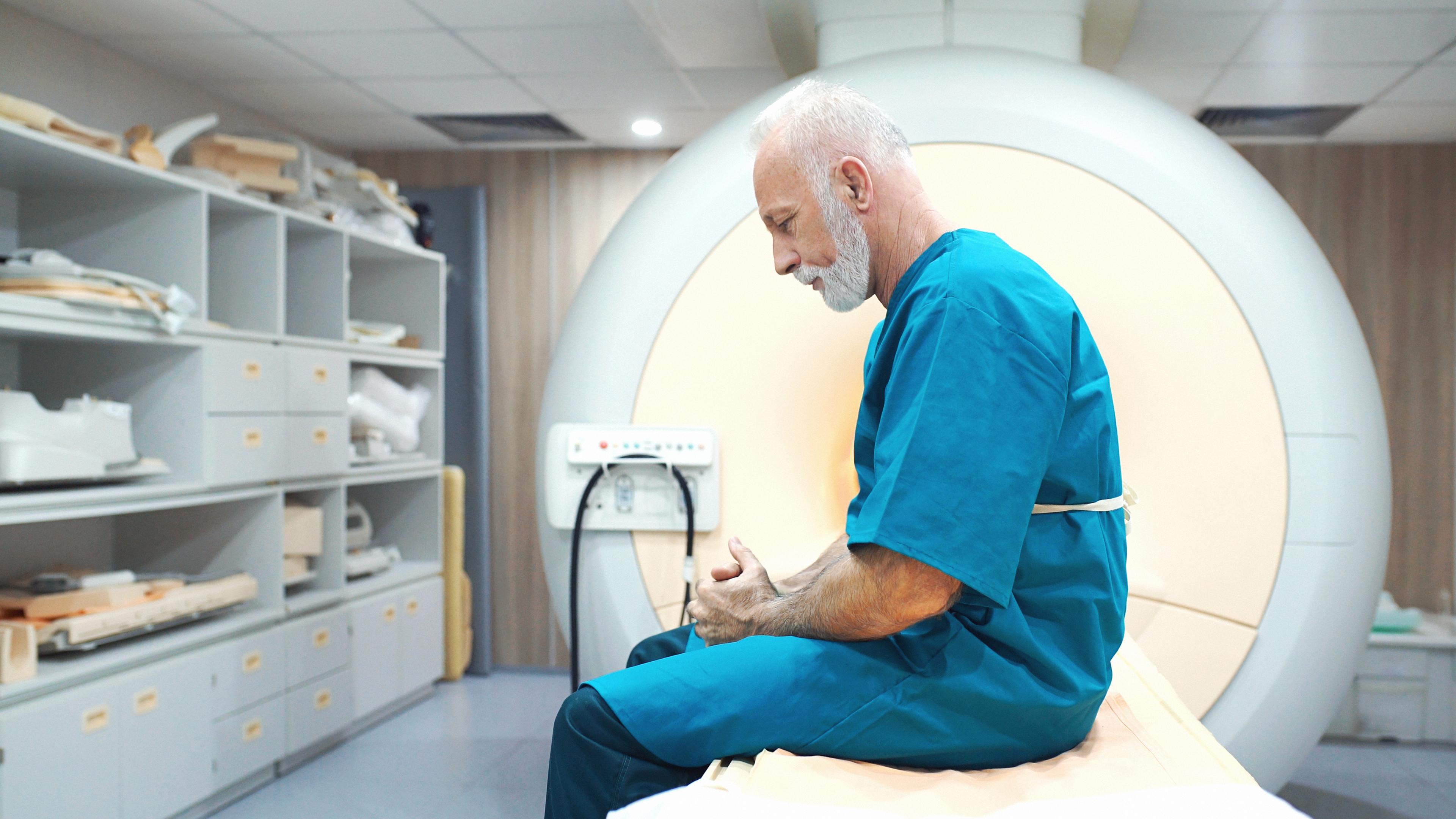What is Scanxiety?

Jake Newby
| 3 min read
Jake Newby is a brand journalist for Blue Cross Blue Shield of Michigan.

There’s a term for specific feelings of apprehension and anxiety before, during or after important medical imaging. It’s called “scanxiety,” a combination of the words “scan” and “anxiety.”
Coined by a cancer patient in 2011, there is no specific criteria to describe scanxiety, but it most often occurs in people living with an advanced stage of cancer. According to a 2023 study on the term and its meaning, scanxiety is a transitory emotional state. This makes it consistent with the concept of state anxiety, which is an acute form of anxiety experienced in a particular and temporary situation.
A 2022 study on scanxiety found that while it may not be pathological in the same way an anxiety disorder is, scanxiety may impair quality of life. It is considered common and can be severe for some people.
What causes scanxiety?
Studies and patient narratives published on scanxiety describe specific anxiety-provoking elements of the scan experience in patients. Cancer patients with regularly scheduled scans based on their type of cancer and treatment may suffer from a regular cycle of scanxiety.
The uncertainty and fear associated with what the results may reveal is possibly the most common cause of scanxiety among people who experience it ahead of their procedure. Fear of hospitals or medical centers and prior bad experiences or poor outcomes are two others.
According to patients, scanxiety also arises during the procedure and while awaiting results.
Scanxiety causes stemming from scan procedures:
- Claustrophobia
- Radiation exposure concerns
- Sensitivity to drinking contrast
- Uncomfortable around needles
- Unfamiliar equipment
Scanxiety causes stemming from scan results:
- Implications for treatment
- Meaning for disease status and the course of the disease
- Reminders of initial diagnosis
- Uncertainty about results and the future
What are the symptoms of scan anxiety/scanxiety?
Some patients may feel so overwhelmed by feelings of anxiety during their cancer journey that they develop an anxiety disorder. This is often accompanied by feelings of persistent and excessive worry. As a result, scanxiety symptoms may align closely with symptoms of anxiety disorder, including:
- Headaches
- Increased heart rate
- Lightheadedness or faint, dizzy feelings
- Muscle pains and tightness
- Nausea
- Restlessness
- Trouble eating and sleeping
- Shortness of breath
- Sweating
How do you deal with scanxiety?
Among patients who have opened up about scanxiety over the last decade, most agree that the condition doesn’t necessarily just go away with improved health. It’s common for patients undergoing disease surveillance scans to experience recurring feelings of scanxiety for fear of cancer recurrence or their disease progressing.
Certain techniques could ease feelings of scanxiety in some people. Try distracting yourself by spending time around loved ones. Journaling and meditation could also be big helps.
Another big stress reliever could line in the line of communication you keep with your health care team. Ask them when to expect the results, who will deliver them to you and how they will be delivered – whether that be in person, virtually or on the phone. Knowing what to expect can help you manage uncertainty as you await results. It takes some of the guess work out of the equation, which can ease feelings of scanxiety in some people. Don’t hesitate to seek advice from your primary care provider about your scanxiety and its severity. They might recommend a relaxation technique or even medication that could be helpful.
Lastly, don’t underestimate the power of a positive attitude. A great way to deal with scanxiety is to keep testing in perspective. Each new result and bit of information can bring you one step closer to a resolution, and provide your health care team with the opportunity to make the best decision for you and your family.
Photo credit: Getty Images
Keep reading:
- Anxiety Screening Now Recommended for All Adults
- What is Silent Grief?
- Back to School: Mentally Preparing to Return to College





